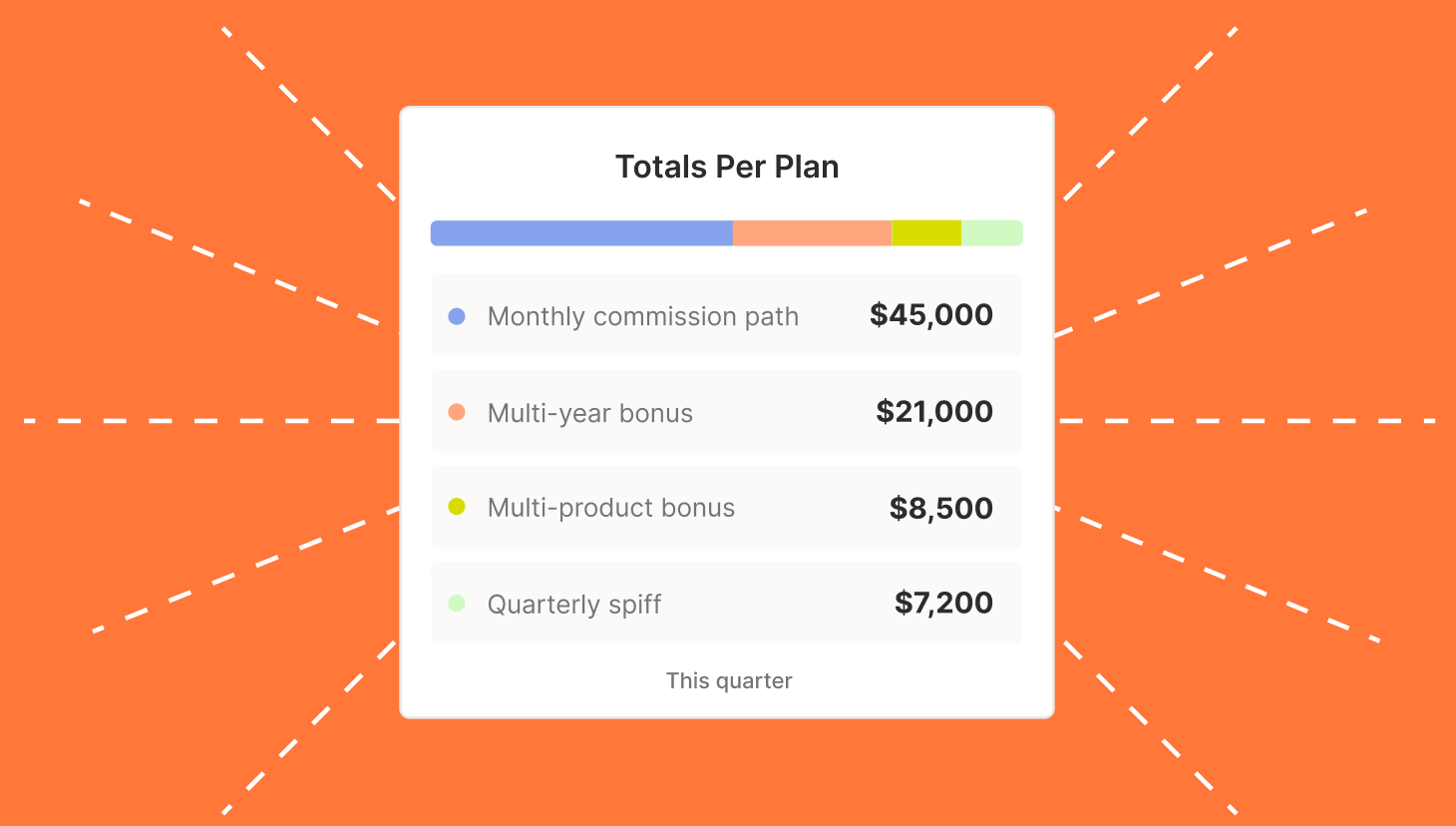A sales rep based in Colorado earned $100K in commissions that the company didn’t pay because he left before they collected the cash from the customer. Their compensation policy states that commissions are paid on cash collection.
Did the company make the right call or cheat their rep?
In this case, not only did the company cheat their rep, but they broke the state law, dictating that employees should be paid their outstanding earnings within a specific timeframe. Although there are no federal laws about the payment of commissions following employment termination, most states have laws requiring the payment of earned commissions according to the compensation agreement.
However, even if the law had not mandated it, we think the company should have paid the commissions based on what the rep sold, regardless of what the agreement says. Reps should receive the commissions they earned.
Period.
This blog provides best practices to honor commissions when a rep leaves.
Let’s get started.
Streamline commissions for your RevOps, Finance, and Sales teams
Design, track, and manage variable incentives with QuotaPath. Give your RevOps, finance, and sales teams transparency into sales compensation.
Talk to Sales5 Best Practices When It Comes to Paying Commissions After a Rep Leaves
Should you find yourself in a position where a rep leaves before collecting commissions earned on recent deals, we recommend leveraging these five best practices to properly honor their commissions.
5. Know the State Laws
Laws dictating commission payouts and transparency differ from state to state, according to the Commission Payment State Law Survey. However, some states have very strict policies on commission payouts. For instance, Colorado, Hawaii, Kansas, Maryland, New Jersey, New York, Ohio, Texas, and Virginia prohibit commission withholding after termination.
Arkansas requires employers failing to pay employees all due wages within seven days of the next payday to owe the employee double the wages. Don’t let the term wages confuse you here. The survey revealed that most states recognize commission as wages except Ohio and Alabama.
Although most states have established policies on commission payouts after termination, these policies are typically in effect in the absence of a signed sales rep’s compensation agreement. States indicate that policies on commission payouts after termination should be clearly explained in a signed agreement.
When it comes to the debate of when commissions are deemed earned, most states, except Florida and Georgia, have a general definition that applies in the absence of a commission agreement. Additionally, Delaware and Michigan recognize the procuring cause, where commissions are earned when an order is procured and accepted unless a signed agreement states otherwise.
Download our customizable commission policy template
4. Establish a Crystal-Clear Commission Policy
A commission policy, or a compensation agreement, is a legal document designed to help the company and employee avoid future compensation disputes. It helps commissioned employees better understand your compensation structure and serves as an easy reference if questions arise. You can write your own or download one of our free commission policy templates.
Every commission policy should include a detailed explanation of the following:
- On-target Earnings (OTE): Salary plus commissions when achieving 100% of quota for the year.
- Quota Amount: A sales objective an employee should achieve within a designated period.
- Quota Frequency: How often progress toward quota attainment is measured. Typically, quarterly, but maybe monthly or annually.
- On-target Commissions (OTC): The amount the employee will earn when they hit quota for the year.
- A Commission Table: A table containing commission rates tied to progress toward a quota.
- Additional Comp Plan Elements That Impact Commission Rates: For example accelerators and decelerators.
- Payment Terms: An explanation of how commissions will be calculated. When a sale is considered eligible for commission, and when your organization will pay the commission.
- SPIFs: Additional short-lived contests, incentives, or bonuses during slow periods to drive product line revenue or other exceptional reasons.
- Clawback provision: An explanation of how and when a rep must pay commission back to the company if a customer cancels a contract or fails to pay after the employee has been paid for the sale.
- Dispute Resolution: The process for resolving commission disagreements between employees and the company.
- Accrual: A rule that designates employment status requirements to qualify for a commission or bonus payout.
- Commission Payout Upon Termination: A payout clause that covers paying out earned commissions to a departing sales rep.
- Signature: When an employee signs off on the commission policy, they are acknowledging understanding of their plan.
Getting rep signatures on these policies also creates alignment and transparency in the compensation process. More importantly, the plan verification process gets employees to re-read their commission policies and ask clarifying questions before signing. Once reps have signed off on the policy, ensure they can access these documents at any time to deepen their understanding of it.
3. Differentiate Earned vs. Unearned Commissions
It’s crucial to clearly define the difference between earned and unearned commissions to avoid confusion or misunderstandings.
For instance, earned commissions are commission payments for which the rep has already met all requirements to receive them, such as closed deals within the earning period. However, Unearned Commissions are commission payments for which the rep hasn’t yet met all requirements to receive them, such as a deal closed but outside the earning period.
Clearly defining these terms in your compensation agreement is fair to both parties in several ways. It ensures the rep receives the compensation they’ve rightfully earned for their completed work and the company doesn’t pay out for work not yet complete. Plus, it builds employee trust and morale by having a transparent and fair outline of the rules.

2. Communicate Clearly With Existing & Departing Reps
Proactive communication throughout a rep’s employment and during their departure is essential to build transparency and trust. As a result, you prevent frustrations, poor morale, and misunderstandings. Your commission-related communications should include:
- Review Policy Terms: Review the relevant commission policy terms with the departing rep to ensure they understand their entitlements.
- Discuss Payout Timeline: Communicate the timeline for a payout of earned commissions.
- Address Concerns: Openly address any questions or concerns the rep may have regarding their outstanding commission.
1. Lead with Fairness.
Establishing fair and equitable policies helps foster trust within the organization so employees know what to expect and what is expected. It supports the company’s reputation in the market and helps attract top talent.
There are various ways to incorporate fairness into your commission policies. For instance, communicate effectively, ensure equal pay for equal skills, experience, and contributions, and offer quota relief. You can also periodically conduct market research to ensure you’re offering market-competitive compensation and request employee feedback concerning their commission plan.
We believe that paying departing reps on what they sold, regardless of the agreement, since they should be paid what they earned instead of what we legally owe them.
Honor Commissions
Do the right thing and honor commissions when a rep leaves. Leveraging our best practices will help you achieve this goal. Know the state laws, establish a clear commission policy, and differentiate earned from unearned commissions. Then practice clear communications with existing and departing reps and establish fair and equitable compensation policies.
QuotaPath partners with leaders to develop fair and equitable compensation plans and policies and make compensation management processes more efficient through our technology. Schedule time with a team member or sign up for a free trial to see for yourself.



